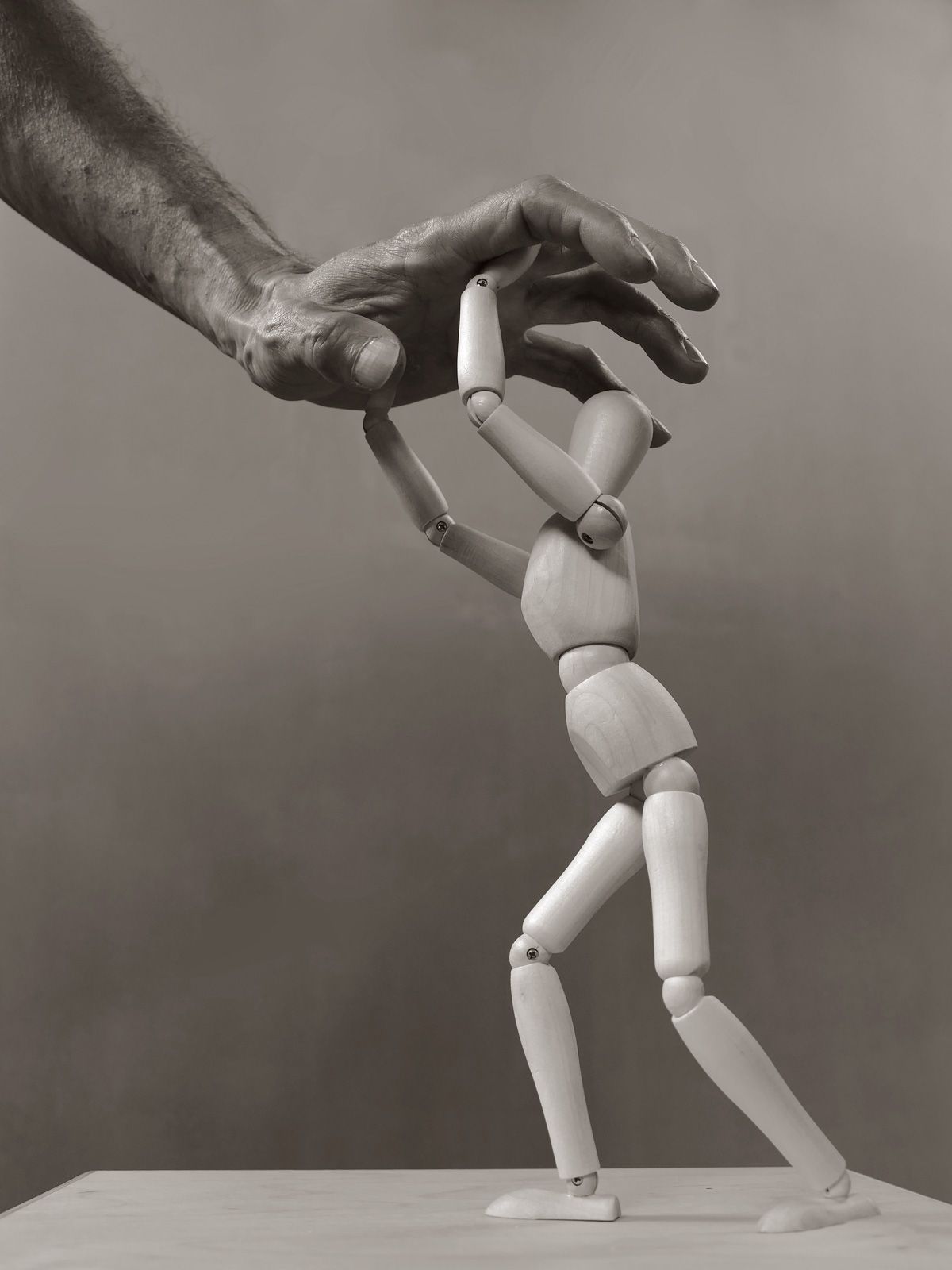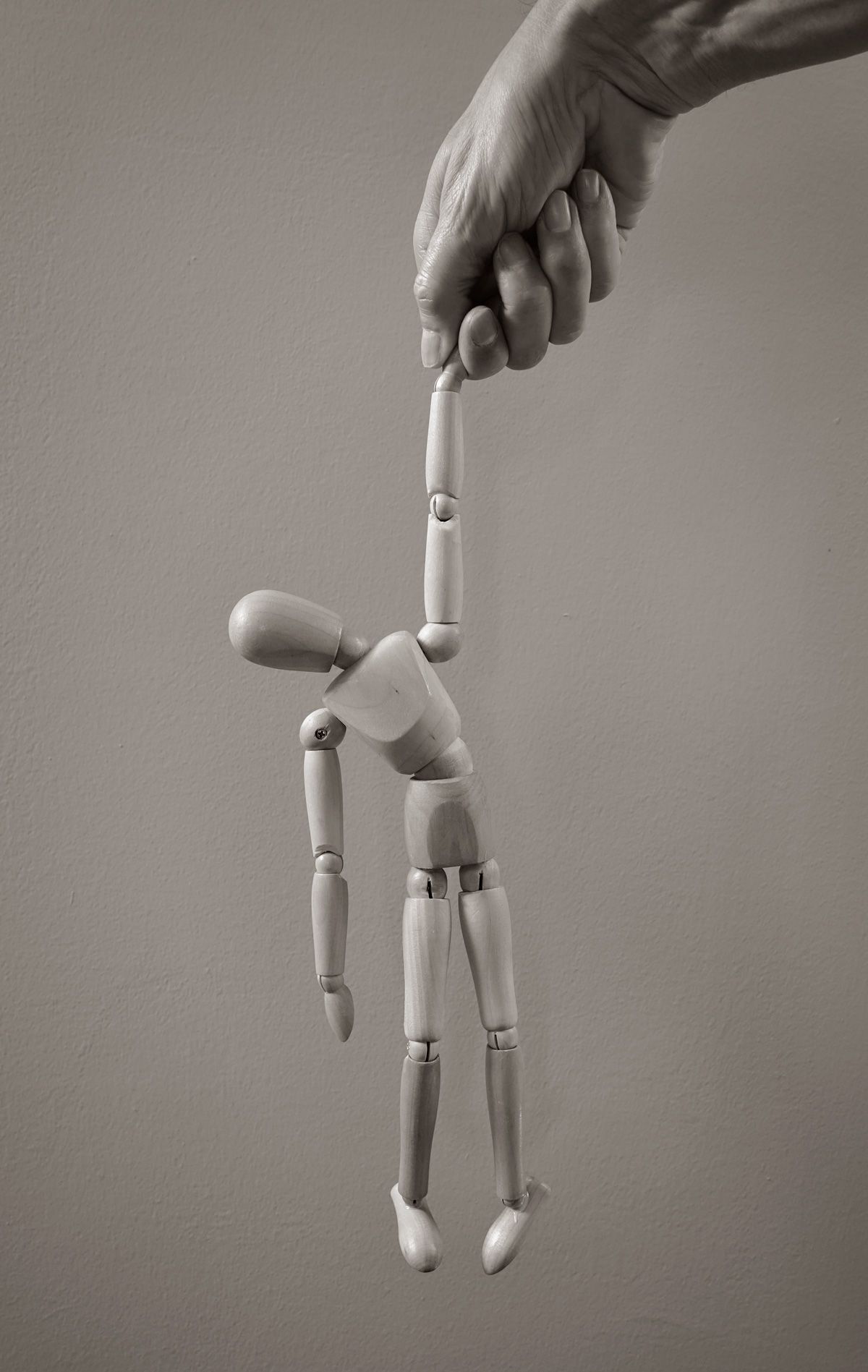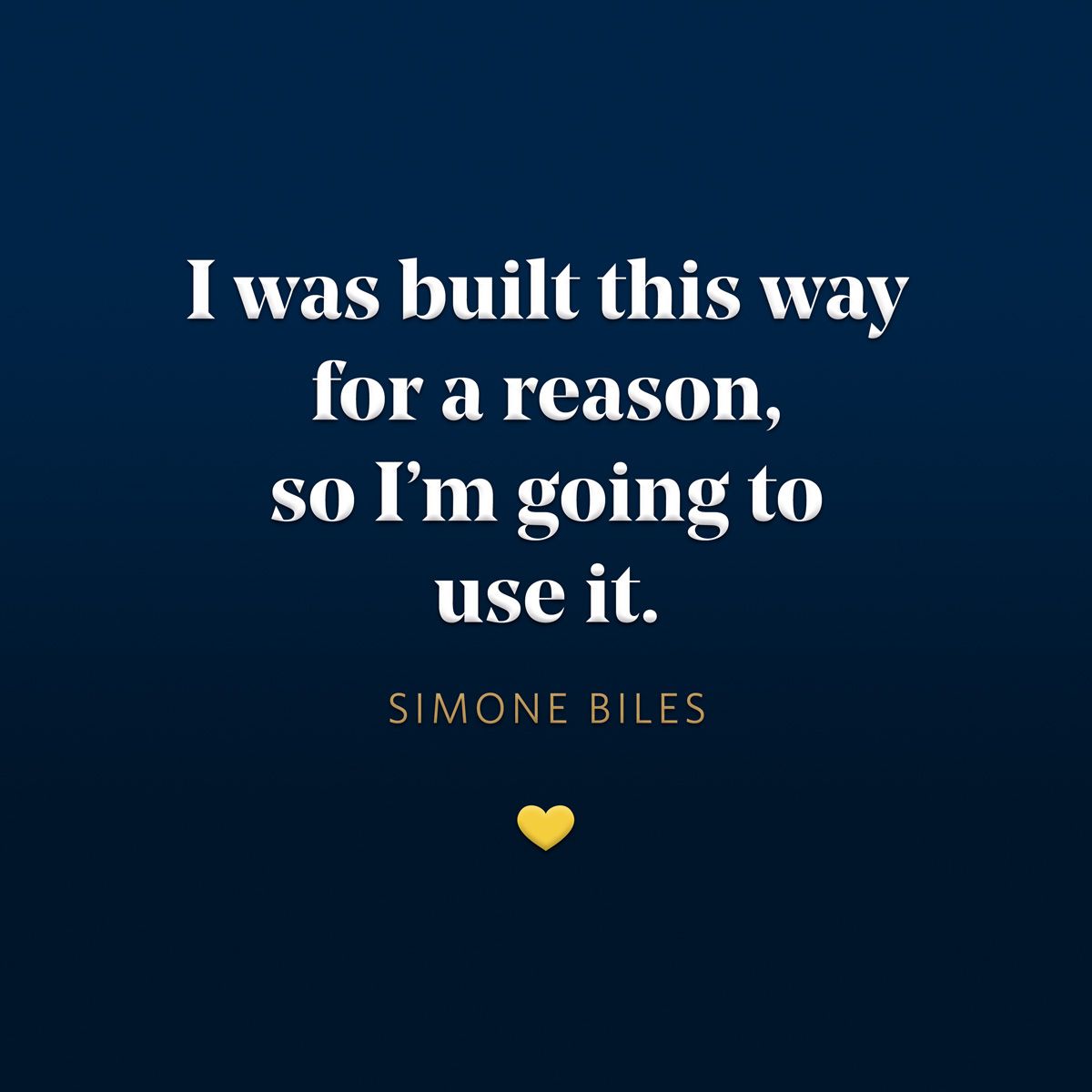|
Volume 4 Number 35 This Week: Sherry Kappel on the ways we form our identity and how racism negatively impacts that development; William Spivey with a retrospect about Black Americans’ ongoing fight to secure voting rights; Clay Rivers on nurturing advocacy in others; and an inspiring quote by Simone Biles. Letter from the Editor💛 Hey Reader, I imagine most of us have a few insecurities of one type or another—as well as a few transformative events in our lives that can raise us up or knock us to our knees. Oftentimes we may know that we’re perfectly fine on an intellectual level, but it’s still hard to convince ourselves emotionally when the world says otherwise. Genetics (“nature”) is certainly a factor in who we are. But there is also a whole lot of “nurture” that goes into who we become, whether the world shapes us or we shape ourselves in defiance of the world. My parents were born during the Great Depression, my dad never went to college and my mom didn’t finish until after three children, yet I am sure they meant it when they told us kids we could be anything we wished if we put our minds to it. There was the assumption that we’d go to college and possibly further, regardless of gender. When I think about everything I’ve been given that enabled me, though, it would be hard to dismiss my whiteness—a false construct of race that has been far less kind to the Black community.
Of course, as much as parents would like to believe otherwise, a parent’s influence wanes a fair bit when we start school and the other kids like us or they don’t, the teachers call on us or not, the subjects come easily or we struggle. We might be decent athletes but few are Olympians, and yet that’s the standard too often held up: “Work harder. Don’t you want to be Simone Biles?” We play a chord or two on the piano, at which point someone mentions Carnegie Hall. It’s not enough to build some coordination and learn to be a team player, or have an ear for music; one must aspire. And even if you’re a star sprinter or you can play all of Beethoven’s concertos, those don’t compare to being the starting quarterback or the lead singer of a rock band. There’s a hierarchy to everything, and it all goes into who we become as adults and where we go from there. I have been blessed, I dare say, with as much as one could hope for in life with middle-class roots. I could not be a Kardashian, even if I wished, but we’ll come back to that. Certainly, this life has had ups and downs, but again—it’s been good enough. When I think about everything I’ve been given that enabled me, though, it would be hard to dismiss my whiteness—a false construct of race that has been far less kind to the Black community. Some white folks claim racism went away when enslavement ended after the Civil War, while others point to desegregation and the Civil Rights Movement. (Any Person of Color knows neither moment came close.) Still, others have some sense of the impact of redlining, unjust justice systems, gerrymandering, and other inequities that continue today. The effects of systemic racism on Black children and their opportunities in life cannot be underestimated. Although experts say the rate of illegal drug use is similar across racial lines, the laws and their enforcement are stacked against Black folks, a major factor in a third of all Black males experiencing incarceration and with longer sentences . . . which means cutting the income of an affected household in half . . . kids without a father figure . . . a mother who’s often absent as she struggles to pay the bills. A disruption of the family dynamic for a generation. Then there’s housing, where predatory lending, racist home valuations, the housing bust of 2008 (which hit Black families far harder than white ones), and biased selling practices make homeownership financially difficult or out of reach for even most two-parent households. Less housing options often relegate Black children to tighter quarters, more frequent moves, sometimes less than ideal neighborhoods, and frequently in places with issues like contaminated water, lead paint, and other environmental hazards. 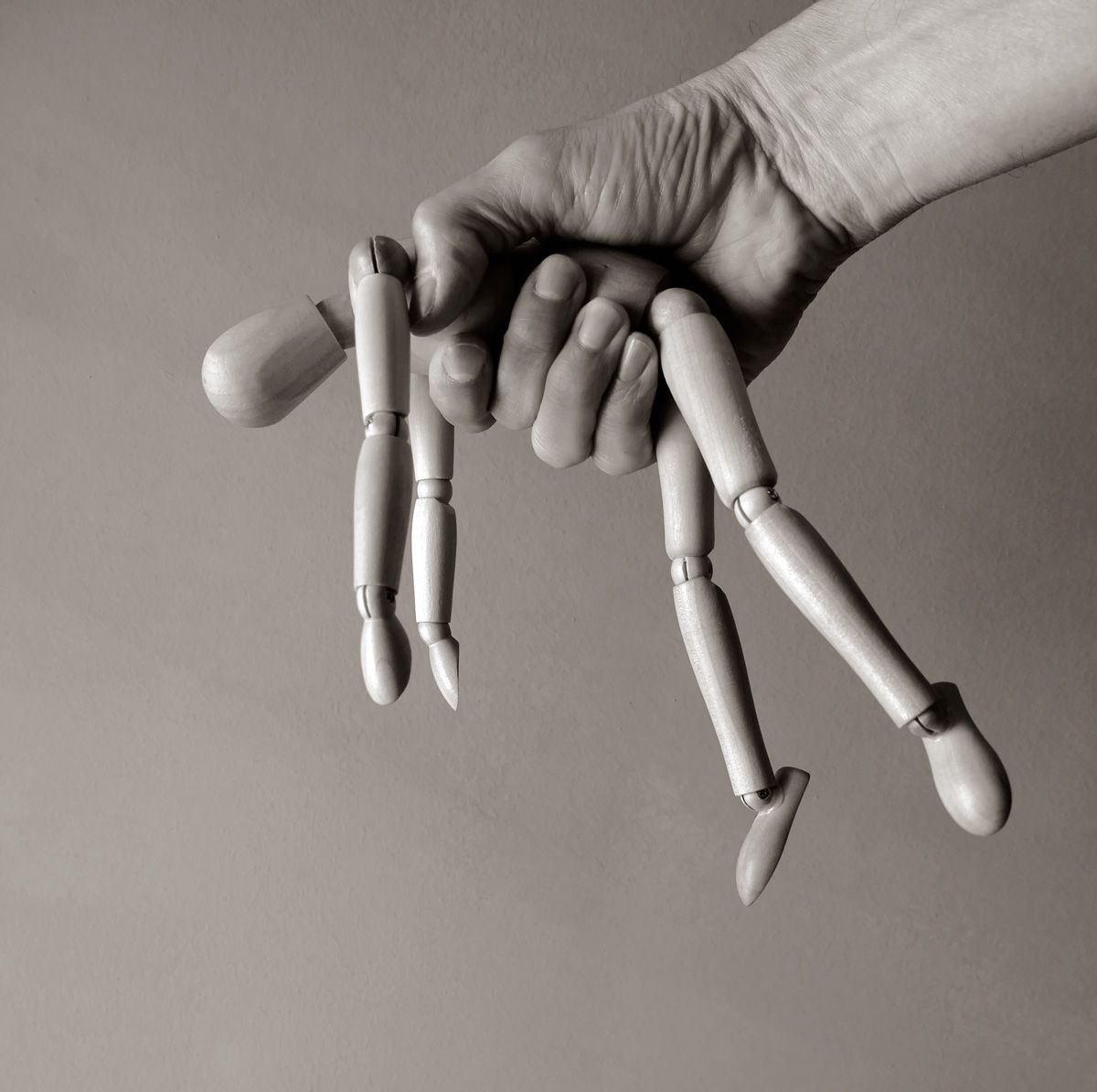 Clean water, some space of one’s own, and the ongoing presence of a father are more than just “things” one does or does not have. One can’t just work around them. Imagine, if you will, having a single mom who must work during most of your waking hours, dangerous streets, pests in the home, moving more often than you see your father. Sure, it’s a worst-case scenario, but not uncommon. Imagine, if you will, how much time a child in those circumstances will have to devote to schoolwork. How much encouragement or support they’ll receive. How hopeful or confident they’ll feel. And these are just some of the more quantifiable effects of systemic racism—the stats that should alarm anyone paying attention. Now let’s think about “the talk.” The effects of having to tell a child, whether rich, middle class, or poor, that “officer friendly”—as the schools sometimes call them—is to be feared and mistrusted, because they hate your skin tone. That in the eyes of someone society sets on a pedestal, you are not worthy. That you will be followed every time you walk into a store. Let’s think too about that school experience. My husband taught at urban schools for many years, then at a school where poorer kids were bussed in—the same schools my daughters attended. While we were driving our kids, some of their classmates were spending hours on a bus every day. I heard how the Black children get called on less often in class. How teachers would shake their heads at how “loud” these children were. How their lunches were often less than nutritious. How they’re encouraged to excel at sports and nothing else. And ironically, the kids who “caused problems” were given a free pass because the schools are afraid of being publicly accused of racism; however, it also tells the child they aren’t worth saving. . . . we can even help the banking and auto industries, but heaven forbid we help those we’ve hurt (are hurting) the most.
There’s more . . . a shortage of Black dolls . . . a lack of dark-skinned models and actresses . . . the click of a car lock when a Black person walks by. And more. Plenty more . . . What is a kid, a mere child, but a human being and a contributing member of society in training, to make of all this? How is a kid supposed to develop a healthy sense of self-esteem, to rise up with so few of the basic supports I enjoyed, and in some cases many less? What if the village is unwilling to nurture? What will that child pass on to his or her own children? Americans—especially white Americans—love to talk about “pulling yourself up by your bootstraps,” often in reference to the impoverished or Black-on-Black crime, oblivious of the advantages they’ve had as white folks. Why can’t “they” do better? Without acknowledging “they” are also us. We can help our farmers, we can help our college kids, we can even help the banking and auto industries, but heaven forbid we help those we’ve hurt (are hurting) the most. Why don’t poor white folks “pull themselves up”? And if we go back to the Kardashian example, why don’t those of us who are middle class “pull ourselves up” to be a Kardashian, an Elon Musk, or Bill Gates? Because it isn’t that easy. Just as it’s hard to pull yourself out of poverty if that’s all you’ve known (especially if you’re treated as less than), it’s just as hard to make yourself rich. It’s a different education, it’s differing expectations and support, it’s what you inherit, it’s who you know, it’s money growing money. Sure, some people manage. The Black community as a whole has done a remarkable job, all things considered, but that doesn’t make it easy. Racism hurts. Obviously, it hurts Black people and other People of Color the most. Side note, it also hurts white folks’ ability to be the best people we can be. It hurts our country’s reputation and our future. But most of all it hurts the bright-eyed Black children, many of whom still dare to dream but must either succumb to the weight of generations of inequity or climb mountains to overcome it. We can and must do better by them. Love one another. Sherry Kappel
OHF Weekly Managing Editor
More from Our WritersFor much of American history, voting has been a life and death proposition for Black people. Let’s revisit some of that history lest we forget what it took to get where we are and why we’re still fighting for the right to vote.By William Spivey 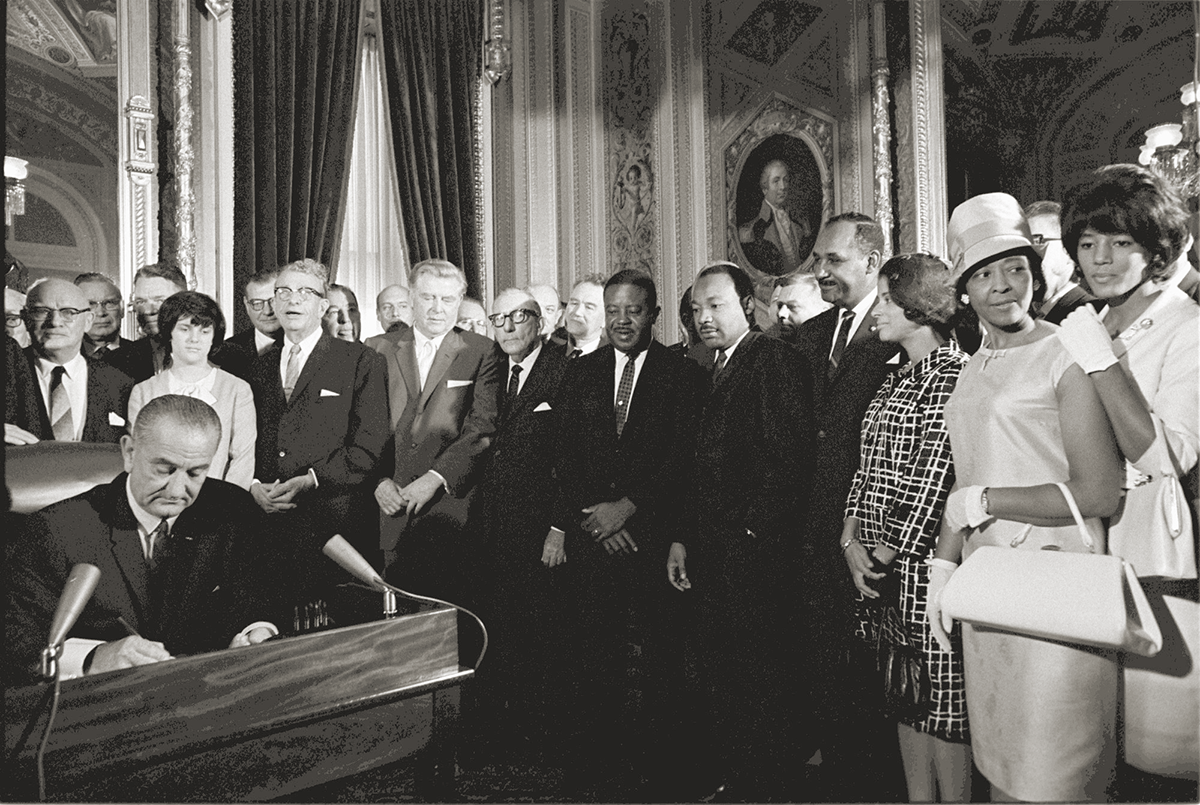 President Lyndon B. Johnson signs the Voting Rights Act of 1965 while Martin Luther King and others look on. Wikimedia Common. I haven’t missed voting in an election in over forty-five years. Voting isn’t just a right; it’s a responsibility. One that my ancestors fought and died for. I voted when well off, when broke, sick and healthy, tired and rested. Before the pandemic, I almost always voted in person. I liked standing in line (short lines anyway), inserting the ballot, and getting the sticker saying I voted and wearing it all day at work. Although I’m Black, I have never had a problem being able to vote. Voter suppression in modern times isn’t about stopping all minorities from voting. It’s about trimming voters from the herd, making it harder or impossible for some minorities, and convincing others that voting is futile and meaningless. I have been fortunate enough to have lived in precincts where voting hasn’t been discouraged. They didn’t move the polling places to inconvenient locations, the lines weren’t long, I had jobs where I could vote any time of day without penalty. But I’m reminded I live less than ten miles from Ocoee, Florida, which is in Orange County along with Orlando, where I live. Voting was once a life and death proposition there for Black people. It has been that way during much of America’s history. Let’s revisit some of that history lest we forget what it took to get where we are and why we’re still fighting for the right to vote. Read the full article.  It’s no one’s duty to “change” a racist’s mind, but we can choose to positively impact their life.By Clay Rivers Racism. The subject is steeped in centuries of emotion. The mere mention of it among people of different ethnicities can suck all the fun out of a room faster than a backdraft consumes air. And more often than not, the resulting vibe after those discussions is just as explosive. Some are exhausted from explaining it and some are tired of hearing about it. In all honesty, I don’t enjoy writing about the subject. But as a Black man, there’s one reason I continue to have those discussions, and if you consider yourself an ally of Black people, Indigenous people, and People of Color (BIPOC), or even someone who stands against racist practices, it’s the same reason you might continue to as well: Because they matter. The State of the UnionIt boggles my mind that in 2021 folks are still resistant to the fact that BIPOC are not afforded the same freedoms, rights, and opportunities as our white counterparts. Even more astounding is that the need still exists for Black, Indigenous, and People of Color to express in words (spoken and written), deeds (personal and public demonstrations), and legislation that America is woefully negligent in fulfilling its promises. That any human being is treated as less than because of their skin color, or for any reason for that matter, is maddening. If you’re still thinking America is flourishing in a post-racial Renaissance, here’s a quick, one-question litmus test just for you. Read the full article.
Your Tax-Deductible Donations Make Our Goals a RealityIf you’re enjoying our articles and they’re opening your eyes to the ways racism is manifested and how you can help dismantle those systems—give! Make a tax-deductible donation to Our Human Family and help us fund more writers, more publications, and more programs. Be it a one-time or monthly donation. No donation is too small. Give now!
Thank you.
Final Thoughts
|
